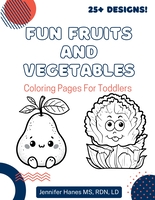Post-Holiday Client Support
MoodMatters Dietetics
I am a registered dietitian who specializes in nutrition as an adjunct therapy for mental health and illness. Just like you, I did not learn about nutritional psychiatry in school. The only psychiatric education we had was a general overview of eating disorders, and my preceptors flat-out told me not to worry about psychiatric medications when reviewing patients. What makes that even worse is that this location had a psychiatric unit on site! Yet, driven by an insatiable thirst for knowledge and fueled by the hyperfocus bestowed upon me by ADHD, I delved deep in to the scientific research that my patients needed. Immersed in the diverse landscapes of numerous mental health facilities, I gained invaluable firsthand experience that illuminated the profound impact nutrition can have on mental well-being. So now I'd like to pass all this knowledge and experience on to you, fellow healthcare practitioners!
Nutrition For Mental Health MoodMattersDietetics.com MoodMatters Dietetics Bringing you the latest information and the happenings in mental health nutrition. Hi Reader! After a discussion on LinkedIn, I decided to host a bonus (free) session of Mood Matters Journal Club to discuss how trauma can lead to metabolic changes in some individuals. Here's the article we read: Posttraumatic Stress Disorder - A Metabolic Disorder in Disguise.pdf Here's the video: And here's the documents I mention in...
Nutrition For Mental Health MoodMattersDietetics.com MoodMatters Dietetics Bringing you the latest information and the happenings in mental health nutrition. Hi Reader! I hope you had a restful Thanksgiving weekend, or at least a moment to catch your breath before the winter holidays start picking up steam. This season can be a lot, for our clients, for our families, and for us. So I’m keeping this week’s update simple and useful. 🗂️ New: Mental Health Nutrition Resource Library I’m excited...
Nutrition For Mental Health MoodMattersDietetics.com MoodMatters Dietetics Bringing you the latest information and the happenings in Nutritional Psychiatry Hi Reader! One of the most common things I hear from other professionals—especially those working in nutrition and mental health—is this: “There’s just so much to keep up with.” And it’s true. New studies drop every week. Recommendations shift. Headlines contradict each other. And suddenly, you're wondering whether you're behind just...
